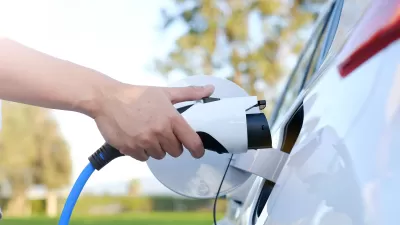The mid-term elections have created even more uncertainty for the Livable Communities Act, which has stalled in the House and has yet to be taken up by the full Senate. Critics worry about government spending and housing affordability.
The Livable Communities Act has already been modified from its original form, and it is likely that modifications will continue to be made as Congress is expected to become more conservative and spending-conscious. The bill, which is sponsored by Senator Chris Dodd (D-CT), aims to provide funding for selective projects that increase the stock of transit-oriented development, support density, and work to minimize the adverse impacts of development on the natural environment. Supporters of the Act claim that it will help regions and communities become more economically competitive and increase the efficiency of federal government programs such as DOT and HUD.
Of late, opposition to the bill has been focused on the relationship between smart growth policies and housing prices.
"Wendell Cox, a critic of the bill and author of War on the Dream: How Anti-Sprawl Policy Threatens the Quality of Life, maintains that smart growth strategies restrict land use and inevitably drive up the cost of housing. He asserts that typical 'so-called livable' policies force housing prices up by prohibiting development on available land and requiring excessively large suburban lot sizes. In part, research by the Brookings Institution Center on Urban and Metropolitan Policy concurs: large suburban lot sizes are found to drive up housing costs and tend to be exclusionary, but they are not 'typical' of smart growth policies, and not in line with the criteria for plans the Livable Communities Act would fund."
FULL STORY: What Will Be the Fate of the Livable Communities Act?

Planetizen Federal Action Tracker
A weekly monitor of how Trump’s orders and actions are impacting planners and planning in America.

Restaurant Patios Were a Pandemic Win — Why Were They so Hard to Keep?
Social distancing requirements and changes in travel patterns prompted cities to pilot new uses for street and sidewalk space. Then it got complicated.

Map: Where Senate Republicans Want to Sell Your Public Lands
For public land advocates, the Senate Republicans’ proposal to sell millions of acres of public land in the West is “the biggest fight of their careers.”

Maui's Vacation Rental Debate Turns Ugly
Verbal attacks, misinformation campaigns and fistfights plague a high-stakes debate to convert thousands of vacation rentals into long-term housing.

San Francisco Suspends Traffic Calming Amidst Record Deaths
Citing “a challenging fiscal landscape,” the city will cease the program on the heels of 42 traffic deaths, including 24 pedestrians.

California Homeless Arrests, Citations Spike After Ruling
An investigation reveals that anti-homeless actions increased up to 500% after Grants Pass v. Johnson — even in cities claiming no policy change.
Urban Design for Planners 1: Software Tools
This six-course series explores essential urban design concepts using open source software and equips planners with the tools they need to participate fully in the urban design process.
Planning for Universal Design
Learn the tools for implementing Universal Design in planning regulations.
Heyer Gruel & Associates PA
JM Goldson LLC
Custer County Colorado
City of Camden Redevelopment Agency
City of Astoria
Transportation Research & Education Center (TREC) at Portland State University
Camden Redevelopment Agency
City of Claremont
Municipality of Princeton (NJ)





























